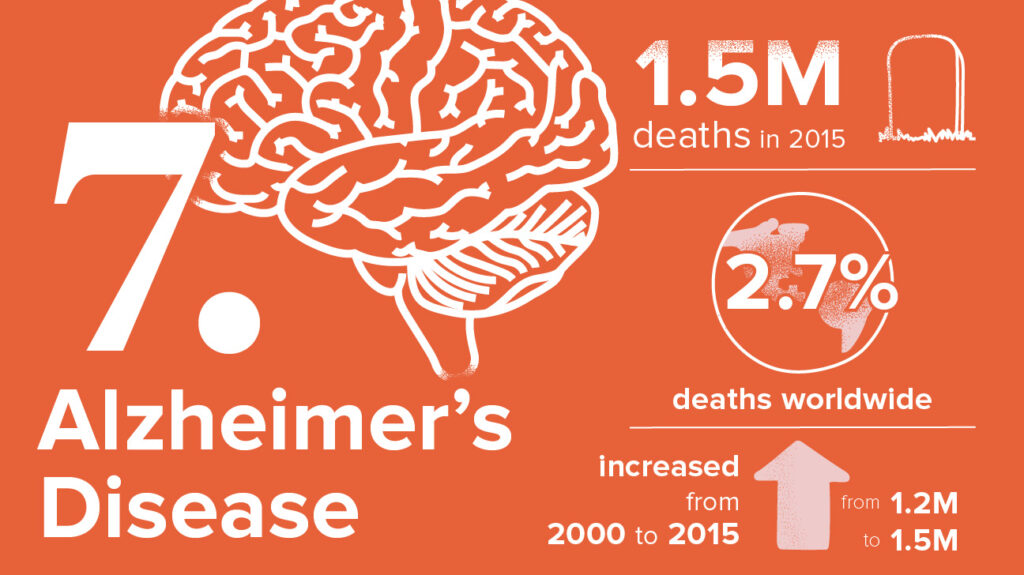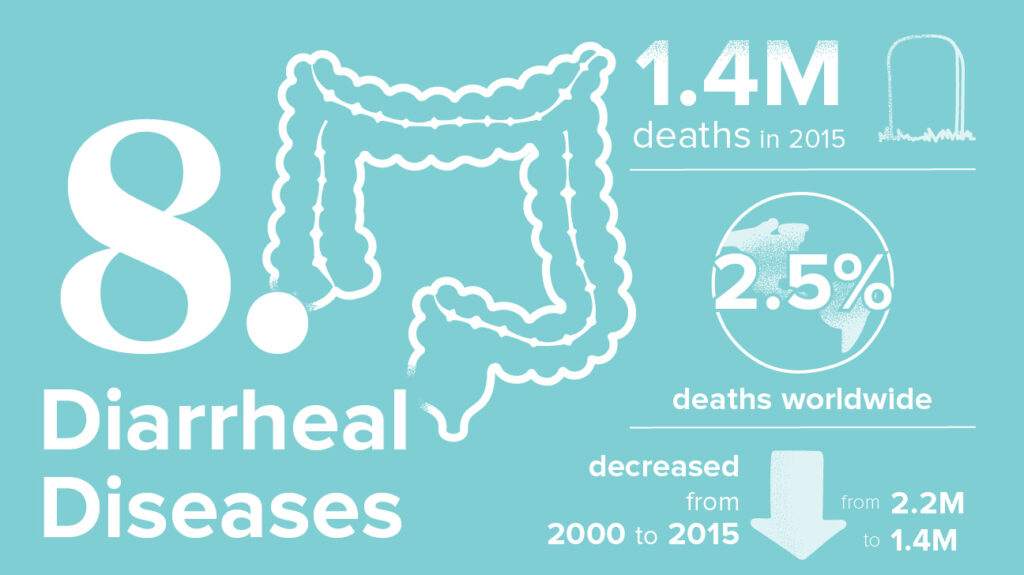7. Alzheimer’s disease and other dementias

You might imagine a loss of memory when you think of Alzheimer’s disease or dementia, but you might not see a loss of life. Alzheimer’s disease is a chronic condition that progressively impairs memory and other brain processes. These consist of typical conduct, thinking, and reasoning.
The most prevalent kind of dementia is Alzheimer’s disease, which accounts for 60 to 80 percent of all instances of dementia. Beginning with minor memory issues, difficulties recalling details, and lapses in remembrance, the condition. But if the illness worsens over time, you can lose the ability to recall lengthy periods of time. According to a 2014 study, there may be more fatalities from Alzheimer’s in the United States than was previously thought.
Risk factors and prevention
Alzheimer’s disease risk factors include:
- being older than 65
- a family history of the disease
- inheriting genes for the disease from your parents
- existing mild cognitive impairment
- Down syndrome
- unhealthy lifestyle
- being female
- previous head trauma
- being isolated from a society or exhibiting inadequate social participation over a lengthy period of time
Alzheimer’s disease cannot presently be prevented. Why some people acquire it and others do not is a mystery to researchers. They are attempting to comprehend this while also looking for preventative measures.
A heart-healthy diet is one factor that can help lower your risk of the illness. A diet rich in fruits and vegetables, low in meat and dairy products that are saturated in fat, and high in sources of healthy fats like nuts, olive oil, and lean fish may not only help you lower your risk of heart disease but also shield your brain from Alzheimer’s disease.
8. Dehydration due to diarrheal diseases

When you pass three or more loose stools in a day, you have diarrhea. Your body loses too much salt and water if diarrhea persists for more than a few days. Dehydration results from this, and this can be fatal. The most common causes of diarrhea are intestinal viruses or bacteria that are spread by tainted water or food. It is especially prevalent in underdeveloped countries with subpar hygienic conditions.
Impact of diarrheal diseases around the world
The second leading cause of mortality in children under the age of five is diarrheal illness (Trusted Source). Each year, diarrheal illnesses claim the lives of almost 760,000 kids.
Risk factors and prevention
Risk factors for diarrheal diseases include:
- living in an area with poor sanitary conditions
- no access to clean water
- age, with children having the highest risk of having severe diarrheal illness symptoms
- malnourishment
- a weakened immune system
The greatest way to avoid disease, in UNICEF’s opinion, is to maintain proper cleanliness. Effective handwashing practices can cut the occurrence of diarrheal illnesses by 40%. Additionally, access to early medical assistance, enhanced sanitation, and higher-quality water can all aid in the prevention of diarrheal illnesses.








